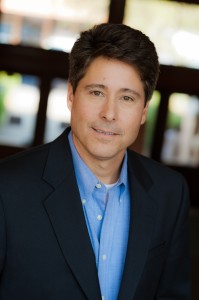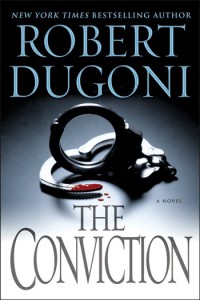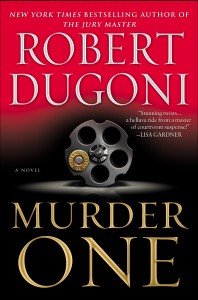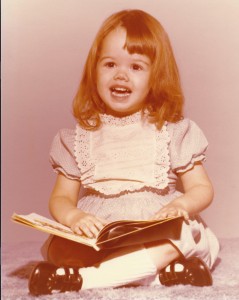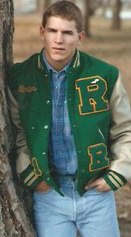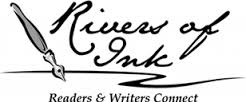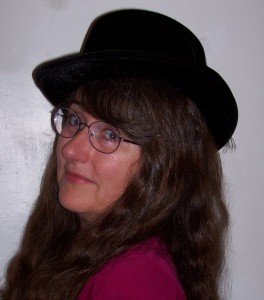A little over a month ago, I took part in a local conference for readers and writers called “Rivers of Ink” here in Richland, Washington. I was there to participate on a panel regarding self publishing, but it gave me the opportunity to meet our keynote speaker, New York Times bestselling legal thriller author Robert Dugoni. I’ll never forget his tale of struggle and eventual success as a writer…nor his description of his first writer’s space. He very graciously said “Yes” when I asked if I might feature him in one of my interviews.
Me: You’ve said that at age 13 you knew you wanted to be a writer. What made you decide that, and, before that point, what career(s) had you hoped to pursue, if any?
Bob: I just loved stories. It was as simple as that. I loved to read them. Loved to write them and loved to tell them. I had a 13-year-old baseball team convinced I was a descendant of British Royalty. I had this elaborate story and they all sat in that dugout mesmerized until the end when I told them I’d made the whole thing up. They thought that was even better than the real thing. After that they’d ask me to make up something else.
(Definitely some of your earliest fans!)
Me: Why thrillers? What makes you write suspense, and, in your opinion, why do readers crave it?
Bob: In all honesty, I chose thrillers because I was a lawyer and Grisham and Turow had just started the legal thriller genre. It seemed a natural and the easiest fit. Unfortunately, my first book came out just as the genre had really died down. But I really just love to write. I don’t consider myself a genre writer. Often people have trouble classifying me because I don’t write your traditional thrillers with all action and dialogue. I have a lot of character development and that throws some people off. My books, I’m told, are more cerebral than a lot of thrillers. (Just my kind of thriller.) I try to write honest characters, people who have self-regard for their own well-being. I figure if my character cares about him or herself, then my readers will care about them. If I can get my readers to care, I can get them invested, and once I do that, then I can put my character in peril. People love suspense. It’s why surprise parties are a big hit. People want to not know. They want someone to outsmart them. They want to try to figure things out.
(Exactly.)
Me: What has each of your previous occupations–gas attendant, hospital janitor, journalist, and lawyer–taught you about people? Have any of those lessons come out in your novels?
Bob: Every lesson has come out in my novels. Everything I learned at home and every person I have encountered in my life has provided me with some material. I learned a lot pumping gas. Back then there was no self-serve. I worked alone at night on one of the busiest streets on the San Francisco Peninsula. I had all kinds of things happen. What I remember were the people who would sympathize with me when I was working so hard. And I remember the people who didn’t. It was great insight into human compassion. I couldn’t get to a pump one time and the guy had only asked for $5 of gas. It turned out to be over $8. He just stood there and watched the numbers tick by. Didn’t even try to turn off the pump. Stood there saying, “Oh I’m loving this.” Then he handed me a ten and said he wanted his five back. The mistake was mine and he didn’t care what my boss said when he couldn’t balance the books. The guy was in a suit and driving a Mercedes. Honest.
(Hmm…gas prices have changed but human nature can still be pretty low, eh?)
Me: I know you spent several years working on learning your craft in order to write well enough to become a best-selling author. What are some of your favorite books on the craft of writing?
Bob: Christopher Vogler’s book, THE WRITER’S JOURNEY; Sol Stein, ON WRITING; ELEMENTS OF FICTION by Writer’s Digest, all of them; and SELF EDITING FOR FICTION WRITERS.
Me: You’ve said you’re obsessive compulsive. How does this hinder or help your writing process?
Bob: It helps in that I have to write and once I get going I am very fast. I can write thirty pages a day when I’m going. The hard part is shutting down and letting things go. Sometimes I’m on overload and have to go and exercise just so I’m tired enough to focus.
Me: I imagine that, as a journalist for the Los Angeles Times and then a law partner later in Seattle, you’ve seen a wide variety of offices. Please compare them to the office you set up for yourself when you gave up the law and decided to write full-time. Are you still writing there, or do you use a different office now? (I’d love to post a picture of either that first small windowless office or your current writing space.)
Bob: I don’t have a picture of that windowless 8X8 foot office. I wish I did. I never was one for a big office. To me it was always just a place to work, get as much done and then go home. I guess it’s that old adage about not living to work but working to live. I never wanted to make my office so comfortable that I wanted to stay there. I guess I also was never comfortable with the thought that any office I would be in would be my last, that I would be an attorney forever and forty years later I’d retire and pack up and leave. I now have an office at home that I have cluttered with knickknacks from all my travels, framed photos of my books, a picture of me running my one and only marathon, the cover of Time Magazine when the Loma Prieta Earthquake hit and my Giants World Series Ticket Stub. I also have a poster of Elvis Presley at 22 years of age that I put on a grape crate. I’ve had that poster since I was 16 and its been on a wall in my home ever since.
(Nice! I don’t even need a photo to visualize all that.)
Me: Tell us about your experience getting an agent . . . and what finally made the difference.
Bob: It was difficult. My first agent died and no one bothered to even tell me. (He told this story at the conference…he’d been waiting for the contract for almost a month and finally called. That’s when he got the news.) I finally got an agent when I had a product people felt worthy of representing and trying to sell. That was the bottom line. I needed a product that was good, a story that held together. I had something someone believed in.
Me: Okay, bear with me for a minute. Let’s say they’ve arrested the Wicked Witch of the West from The Wizard of Oz (your favorite fictional villain). She’s being tried by the people of Oz for kidnapping, dognapping, and disturbing the peace. How would your protagonist, defense attorney David Sloane, successfully defend her when faced with a jury full of Munchkins? (A few lines of courtroom dialogue will do.)
Bob: (Cross-examining Dorothy)
“Is it true that you dropped a house on my client’s sister?”
“Oh my. I didn’t mean to.”
“Nevertheless that is a picture of your house, is it not?”
“Yes, that’s our home in Kansas.”
“But this isn’t Kansas and that isn’t Aunt Em whose legs are sticking out from under that house is it.”
“No it isn’t.”
“And my client’s sister was in possession of a pair of ruby slippers, wasn’t she?”
“I had nothing to do with that. You see, I was trying to make it home to Aunt Em when this tornado hit – ”
“Could you answer my question Ms. Gale? Those ruby slippers were on my client’s dead sister’s feet, weren’t they?”
“I guess they were.”
“And then they were on your feet, weren’t they?”
“I didn’t –”
“Ms. Gale?”
“Yes, they were on my feet.”
“So you can see, can’t you why my client would be upset, can’t you?’
“I suppose I can.”
“And she asked for those slippers back, didn’t she?”
“But Glynda the Good Witch of the South told me not to.”
“I’m sorry, did you just say ‘Good Witch of the South’?”
“Yes.”
“And I presume this ‘Good Witch of the South’ rode in on a broomstick?”
“Oh no, she floated inside of a bubble.”
“A bubble, you say?”
“Yes, a bubble.”
“Ms. Gale, did you happen to ingest any hallucinogenic drugs prior to your landing in OZ and stealing a pair of shoes off of a dead corpse?”
“Heavens, no.”
“Have a little bump on the head did we?”
“Yes, the window frame came loose and hit me.”
“And you blacked out?”
“I did.”
“Are you a vivid dreamer, Ms. Gale?”
“Oh yes, I have some wonderful dreams.”
“I don’t doubt it. The defense rests, Your Honor.”
(Well done! Case closed.)
Me: Where do you see Publishing going in the next five years, given the growth of e-books? Are agents and publishers nervous or are they adapting, and, if so, how?
Bob: I think we will see fewer and fewer hardbacks and fewer and fewer authors published in hardbacks. I think the successful authors at the top of the food chain will also shrink. I see publishers investing less money in new authors and giving them less time to be successful. It’s cheaper and the odds improve if the publisher invests in many authors with the hope that one of them hits it big.
Me: Finally, did you ever get a chance to meet Scott Turow and tell him how he’d impacted your life? Or does his writing (as well as that of John Grisham) hit too close to your own to make such a meeting possible or comfortable?
Bob: I met Scott Turow at a conference in South Carolina. He was the keynote speaker. Afterward, he was in the green room with the rest of us presenting at that conference. I walked up and told him that I’d really disliked him. He looked shocked and I told him the story. He smiled. Turned out to be a really nice guy.
(You see, Bob went to law school thinking he could write a book during his second year just like Scott Turow did. Of course, he found out he couldn’t. Then he thought he’d try and write while practicing law just like Turow did. Again, he found it impossible. So Turow had become a sticky point for him. :D)
Here’s Bob’s official website where you can find out more about him and his writing. He’s authored seven books, including his latest, THE CONVICTION.
Another thriller, MURDER ONE, just came out in paperback. But if you want to get to know David Sloane from the beginning, I recommend THE JURYMASTER. Great read!
Originally posted 2012-11-28 06:00:42.

